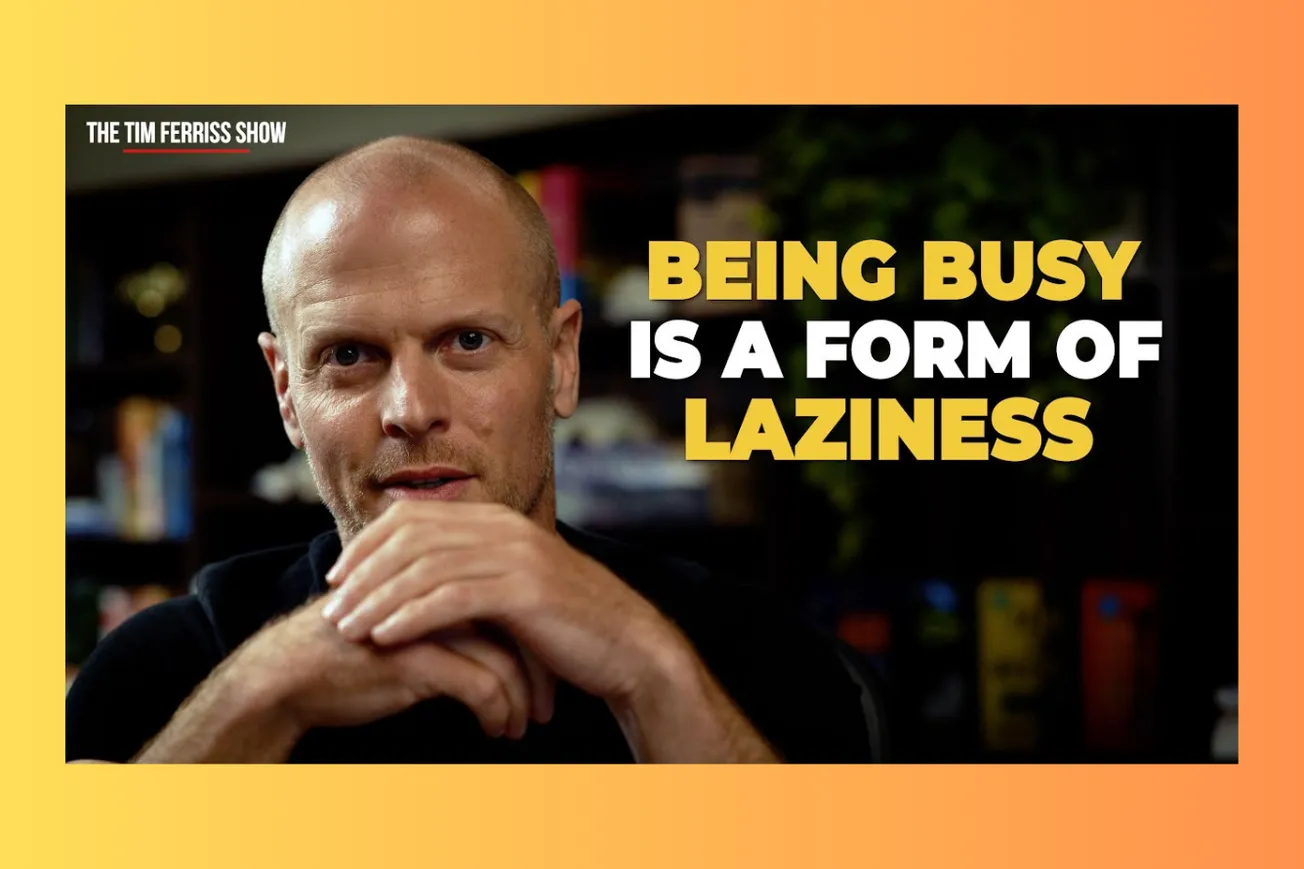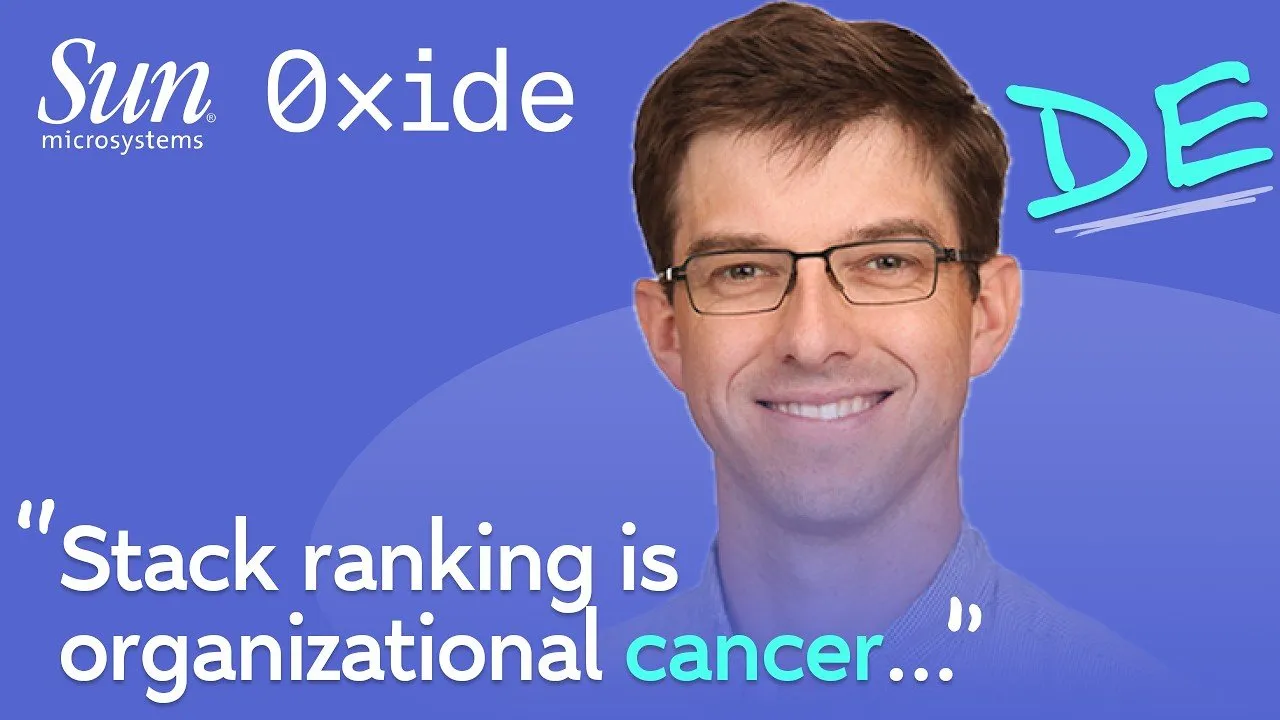Table of Contents
Master the art of strategic focus with an 8-step productivity framework designed for people who struggle with traditional time management approaches.
Key Takeaways
- True productivity comes from doing the right things, not doing things efficiently or quickly
- Vulnerability and acknowledging personal struggles can paradoxically lead to better performance and outcomes
- Most successful people are "strange creatures who do big things despite lots of self-defeating habits"
- An 8-step morning routine focusing on uncomfortable but important tasks creates disproportionate results
- Single-tasking on one high-leverage item beats attempting multiple urgent but less important tasks
- Being busy often serves as sophisticated procrastination, avoiding the few critically important actions needed
- Block scheduling 2-3 uninterrupted hours for one priority task prevents the illusion of productivity through fragmented time
- Asking "if this were the only thing I accomplished today, would I be satisfied?" reveals true priorities
The Vulnerability Paradox in Achievement
- Successful people often hide behind carefully curated images, but authentic vulnerability reveals the messy reality behind achievement
- Neil Gaiman's wisdom about "walking down the street naked" suggests that meaningful work requires emotional exposure and risk-taking
- The media perpetuates unhealthy superhero narratives that make ordinary people feel inadequate and incapable of significant accomplishment
- Real high achievers experience the same self-defeating habits, internal struggles, and emotional challenges as everyone else
- Personal examples of dysfunction alongside achievement demonstrate that perfection isn't required for meaningful progress
The disconnect between public perception and private reality creates unnecessary barriers to action. When we understand that even highly successful individuals wrestle with procrastination, anxiety, and self-doubt, it becomes easier to move forward despite our own imperfections.
Efficacy Over Efficiency: Redefining Productivity
- Traditional productivity focuses on doing things quickly or well, while efficacy emphasizes doing the right things regardless of speed
- Efficiency without direction leads to being extremely good at unimportant tasks, creating an illusion of progress
- The counterintuitive truth: slower, more deliberate action on high-impact items outperforms rapid execution of low-value activities
- Most productivity advice assumes the problem is execution speed, when the real issue is priority identification and sustained focus
- Single-tasking on one critical item generates better outcomes than multi-tasking across numerous urgent but less important demands
This approach challenges conventional wisdom about time management. Rather than optimizing for maximum output, the focus shifts to maximum impact through careful selection and deep engagement with fewer, more meaningful tasks.
The 8-Step Anti-Procrastination Framework
- Wake up at least one hour before computer work begins, avoiding immediate reactive mode and email overwhelm
- Create analog thinking space with tea and paper, physically separating planning from digital execution environments
- Identify 3-5 anxiety-inducing tasks that have been repeatedly postponed, recognizing that discomfort often signals importance
- Apply the satisfaction test: "If this were the only thing I accomplished today, would I be satisfied with my day?"
- Use the leverage filter: "Will moving this forward make other to-dos unimportant or easier to complete later?"
- Block 2-3 uninterrupted hours for one high-leverage item, letting urgent but less important tasks wait until tomorrow
The framework deliberately targets psychological resistance rather than time management mechanics. By starting with uncomfortable but important tasks, it addresses the root cause of procrastination while building momentum for the day.
- Focus exclusively on one item during the blocked time period, avoiding the false productivity of fragmented attention
- When distraction occurs, gently redirect attention back to the single priority without self-judgment or downward spiral thinking
The Psychology of Busy vs. Productive
- Being busy serves as sophisticated laziness, providing the feeling of productivity while avoiding challenging, important work
- Indiscriminate action creates motion without progress, filling time with urgent but ultimately inconsequential activities
- Volume bias assumes more activity equals better results, when strategic reduction often produces superior outcomes
- Busy-ness becomes a socially acceptable excuse for avoiding the few critically important but uncomfortable actions required for real progress
- The uncomfortable truth: most people use constant activity to avoid facing their most important challenges and opportunities
Modern work culture rewards visible activity over meaningful results, creating perverse incentives that keep people trapped in cycles of busy work. Breaking free requires consciously choosing depth over breadth, even when it appears less impressive to outside observers.
Overcoming the Perfectionism Trap
- Self-awareness of personal dysfunction doesn't require fixing everything before taking meaningful action on important goals
- Accepting contradictory outcomes—simultaneously struggling with basic habits while achieving significant milestones—reduces perfectionist paralysis
- Kurt Vonnegut's metaphor of feeling "like an armless legless man with a crayon in his mouth" normalizes the creative struggle
- Progress happens despite personal flaws, not because of their absence, making perfectionism an unnecessary prerequisite for achievement
- Everyone experiences periods of feeling like they're "losing at the game of life," making struggle universal rather than personal failure
The perfectionism trap convinces people they must have their entire life organized before pursuing meaningful goals. This framework acknowledges that progress and dysfunction can coexist, removing artificial barriers to action.
Common Questions
Q: What if I have more than one urgent priority that needs attention today?
A: Choose one and trust that focused execution on high-leverage items makes other tasks easier or irrelevant later.
Q: How do I identify which uncomfortable tasks are actually important versus just anxiety-provoking?
A: Apply the satisfaction test and leverage filter—important tasks move other priorities forward or would satisfy you if completed alone.
Q: What if I can't block out 2-3 uninterrupted hours due to meetings and obligations?
A: Start with whatever continuous time you can protect, even 90 minutes, and gradually negotiate for larger blocks as you prove results.
Q: How do I handle guilt about letting urgent but less important tasks slide?
A: Remember that busy work often prevents important work, and tomorrow's urgent tasks will be easier after today's important work is complete.
Building Sustainable Focus in a Distracted World
- Single-tasking becomes a competitive advantage in environments designed for distraction and scattered attention
- Protecting morning hours for important work establishes momentum before reactive demands begin accumulating throughout the day
- Analog planning tools create psychological separation from digital overwhelm, allowing clearer thinking about priorities and strategy
The modern attention economy profits from fragmentation, making sustained focus on important work both more difficult and more valuable. Simple tools and deliberate boundaries create space for deep work that produces disproportionate results.
Strategic underachievement—deliberately doing less overall while focusing intensely on high-impact activities—often outperforms exhaustive task completion. This counterintuitive approach requires confidence to disappoint people with urgent but less important requests while delivering exceptional results on truly meaningful work.
This framework doesn't require superhuman discipline or perfect execution—just consistent application of strategic focus principles. The goal isn't perfection but progress, achieved through better priority selection rather than optimized productivity techniques.





